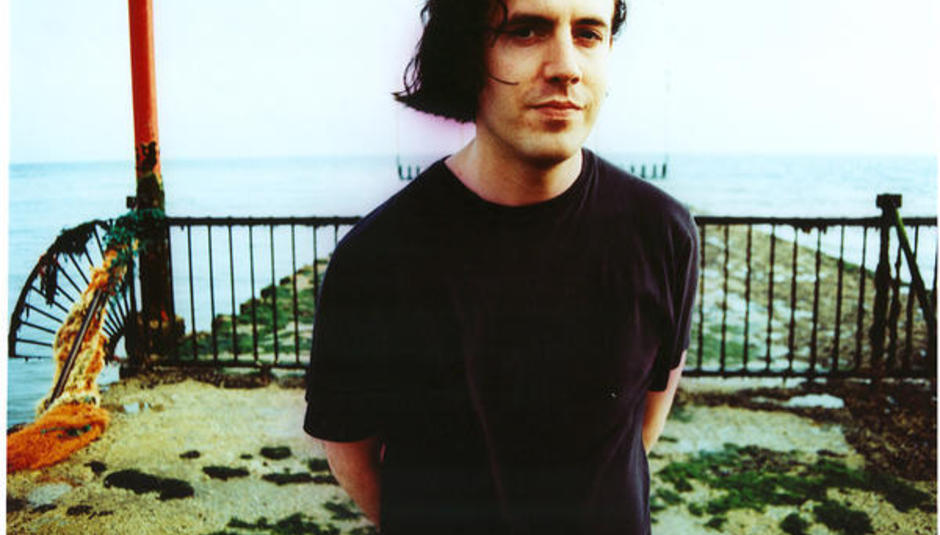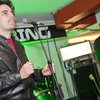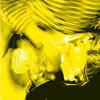Ulrich Schnauss is a name that is just as familiar to techno boffins as it would be to those who perhaps favour the more noise-saturated elements of shoegaze-inspired guitars.
Having released his first record some fourteen years ago under the moniker View To The Future, Ulrich has since gone on to make music under the guises of Ethereal 77 and Hair with Alex Krueger before finally releasing his first long player under the name Ulrich Schnauss, Far Away Trains Passing By back in 2001. Since then, he has released a further two albums, the most recent of which, 2007's Goodbye, was licensed via Independiente in the UK. He has also recently become a fully-fledged member of the band Longview, having initially remixed tracks off their Mercury, long-player. Indeed, the list of artists he has worked with is fairly impressive, boasting the likes of Depeche Mode, Asobi Seksu, A Sunny Day In Glasgow, and Howling Bells among many, many others.
As its shoegaze week here on DiS, we thought it would be quite appropriate to catch up with the musician/producer extraordinaire...
DiS: What got you interested in making - and in particular producing - music in the first place?
US: I didn't necessarily have a very happy childhood due to a fairly fucked up family situation - I turned to music at a very early age as a way to escape reality. I guess it's stayed that way ever since then - making and listening to music always seems to have an almost therapeutic, calming effect - something that enables you to stay sane even in really difficult times.
Your work has been compared to such luminaries as Kevin Shields, Brian Eno and Robin Guthrie - how does it feel to be mentioned in such esteemed company and does that inspire you to always be one step ahead in terms of creativity and originality?
I've never personally heard or seen anyone making such comparisions - and I think it would be quite ridiculous. What the three mentioned artists have in common is that they each created a sound of their own that doesn't seem to rely too heavily on obvious influences - their work has also made an impact far beyond the boundaries of their respective genres. I still feel like I've only just started and am still in the process of developing the basics of my "musical language" - furthermore, I think influences and reference points are very easily recognisable in my work - slowly, over the years I feel like I'm getting closer to a sound that is not so heavily dependent on taking ingredients from the music I grew up with. Right at the moment I'm quite excited about the new pieces I'm working on for the next album as this could turn out to be a big step forward in that direction.
Your earlier works as View To The Future were quite minimal and stripped down compared to your more recent solo releases. Was that a symptom of the times you started making music in, drum and bass being quite an adventurous genre back then, or more a case of natural progression to where you are now?
For me the most important difference between what I've been doing then and what I do now is probably more arrangement and dynamics-related. I always feel like a common problem for people starting out doing electronic music is to get beyond the point where the fascination of successfully managing to get a few sounds out of a machine gets in the way of doing stuff that's interesting on a structural level as well - you're basically missing that other person in the room that would remind you to replace the current sequence -as great as it may sound- with something else at some point - at least after it's been running on a loop for more than five minutes already. The biggest challenge learning how to work with sequenced music is to enable the human being to take over again at some point, stopping you to fall for the short lived satisfaction of mechanical repetition - basically to make music (something that's evolving, dynamical and translates emotion) just using technology as a tool - that's certainly not depending on the genre though - there are a lot of people who managed to reach that point within drum and bass as well - I just listened to J Majik's wonderful 'Slow motion' album again the other day for example.
You were undoubtedly the first musician associated with the shoegaze scene to rely solely on computers and technology - do you see that as being a direction the whole genre needs to embrace if it is to carry on progressing?
In my opinion one of the most interesting aspects of this genre has always been the idea of making guitars sound like synths and synths like guitars etc by using means of sound manipulation - whether hardware or computer based - basically liberating these instruments from their traditional (pop-)cultural connotations. My music might come accross as particularly processing - hopefully not technology- orientated as I'm almost exclusively using synthesizers to create the source material. In general of course, I'd agree that the countless possibilities technology is offering should be explored and embraced - but that seems to be happening anyway - all of the more interesting artists operating in this field - a lot of American bands and projects come to mind - Mahogany, lovesliescrushing, Auburn Lull, Elika, Landing, Sway and countless others - have developed their own unique and specific techniques.
Did you expect the shoegaze community to embrace you and your music rather than say, the underground techno scene, as some of your music, A Strangely Isolated Place for one, isn't that dissimilar to a lot of Warp Records more avant garde releases.
While I don't make music expecting a certain scene or group of people to approve, it certainly was a pleasant surprise to discover that a lot of people who probably share similar tastes and influences liked what I was doing. It's somehow surprising to hear the comparision to "avant garde" electronica as the last three albums were - at least to a certain degree - meant as a statement against that. Towards the end of the 90s it was my impression that a lot of the more "avant garde"/idm-orientated electronic music had become part of the establishment while still pretending to be "cutting edge" and taking risks - what once had been brave and exciting (clicks and cuts, glitches and abandoning conventional musical structures) became an easy way of getting approval from an increasingly self-centered scene. All of a sudden, reintroducing songwriting elements and generally trying to express emotions through sequenced music seemed a necessary counterpart.
Video:Ulrich Schnauss 'Shine'
---
Do you have any current plans for your next solo release, and if so, what can we expect to hear on that record?
I've started working on a new album a while ago - pretty much all the writing's done - I'm at the stage of recording and arranging now. In some ways I'm now feeling the opposite way to what I thought while recording the last three albums - seems like I'm moving towards a more electronic, less indie-orientated sound - also, while it's been quite liberating as well as challenging to work with more traditional song based formulas I'm now quite excited about breaking everything down again in order to explore more open structures that leave additional room for experimentation and atmospheres - ideally I'd like to come up with an album that celebrates the synthesizer as a musical instrument (which is why the new stuff will also be predominantly instrumental) - in a time where so many bands have reverted back to using synths just as a gimmick and a lot of electronica artists feel the need to turn to "real" instruments this seems an interesting prospect.
You're also now a fully fledged member of Longview, playing keyboards with the band both live and on their studio recordings. How did this come about?
I did two remixes for Longview about 5 or 6 years ago - we stayed in touch ever since then and when Rob (McVey) mentioned that they might be looking for a keyboard player I suggested that we should give it a try.
What are Longview's future plans as far as touring and recording goes, and how prominent a part do you play in the whole songwriting process with them?
Longview is essentially Rob's band and he'll always remain the person who provides the core songwriting ideas. However, our approach has become a lot more collective based during the last couple of years. For each song we usually improvise for a couple of hours based on a set of chords and melodies he's come up with - during that time each member settles on his respective contribution (bass, guitar, synth lines etc).
As someone who is equally as accomplished both in the studio and as a live performer, which would you say you prefer doing most?
As far as my solo stuff goes, I definitely prefer the studio part of it - that's simply what it's about anyway. While I'm finally quite happy with the current live set up - I split up all parts of the songs into little loops that I can improvise with using Ableton Live - I don't think it'll ever rival the excitement of working with and creating sounds in the environment that I'm most comfortable in - the studio.
You've also produced and remixed numerous artists. Who has been your most memorable and favourite to work with?
I recorded a cover version of Chapterhouse's Love Forever a while ago - I was extremely excited when Andy (Sherriff) and Stephen (Patman) from the band agreed to contribute vocal and guitar parts (it still seems unreal to me even today) - a couple of months later there even occured an opportunity to play the song together live at Truck's Sonic Cathedral stage - definitely a moment I'm not going to forget!
One of your current projects involves mixing the forthcoming Exit Calm record. How is this coming along and when can we expect to hear the finished results?
We're almost half way done now - I guess one or two more sessions will be required to complete the album. So far I'm very happy with the results - right from the start the core idea's been to somehow try to capture the overwhelming energy of their live performances into a studio recording. We've been trying to mix these songs very dynamically therefore - radical volume changes, emphasizing certain frequency ranges by distorting and overdriving them rather than just using equing etc...
If you could draw up a wishlist of future collaborators you'd consider it an honour to work with, who would be at the top of that list and why?
To reveal wishes like this in an interview usually almost guarantees that it's never gonna happen in the end which is why I'd rather not answer this... !
Video:Ulrich Schnauss 'Look At The Sky'
---
What are your plans for the rest of 2009?
Continuing to work on my next solo record, finishing the Longview album pretty soon, mixing the Exit Calm debut and there's a few more projects planned that I probably shouldn't announce until a bit more progress has been made.
If you had to pick one definite record or song that defined the genre "shoegaze" what would it be and why?
My alltime favourite "shoegaze" song is definitely Chapterhouse's In My Arms. As an introductory album I'd probably recommend Slowdive's 'souvlaki' as it combines all the best bits the genre has to offer in one album: great, timeless songwriting, wonderful soundscape-y guitars and electronics as well as a production that today still sounds exciting and boundary-pushing - the sleeve notes state "mixed and flanged by Ed Buller and Slowdive" for a reason! I also have to mention Mahogany's Dream Of Modern Day which was recorded at a time when not many other people cared for this music (the late 90s) and provided a template for a lot of the the new generation "shoegaze" stuff to come.
Finally, what does the term "shoegaze" mean to you and why?
No musician likes to be trapped in a genre - at the same time I always thought "shoegaze" was one of the more acceptable terms to be associated with simply because you're given a lot of musical freedom. Most other genres provide you with a very limited range of sounds and styles you're allowed to explore - if you go beyond that people will get pissed off, sometimes even accusing you of betraying the scene. "Shoegaze" has never been so much about a particular sound - it's more an attitude, an approach - this becomes apparent even when you listen to the first generation bands: a wide range of styles and emotions are covered from the claustrophobic, suicidal soundscapes of Curve, the 60s inspired noise pop of Ride, the ethereal guitar washes of Slowdive to Chapterhouse who on more than one occasion were probably closer to electronica than traditional indie rock. At the end of the day, "shoegaze" is probably just a name for what psychedelic or escapist music is about today.
For more information on Ulrich Schnauss visit his MySpace site.






















